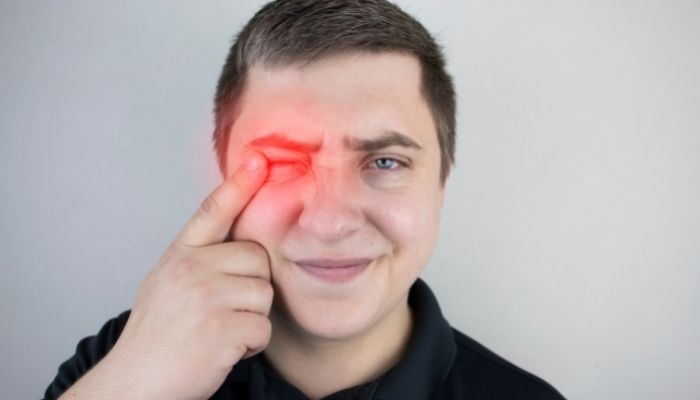The optic nerve is a pivotal nerve that carries information from your eye to your brain. Optic Neuritis (ON) is a condition where your nerve gets inflamed or irritated. You may get optic neuritis due to a sudden infection or nerve disease. As a result of inflammation, you may lose vision temporarily but this occurs only in one eye. People with Optic Neuritis may also experience extreme pain. You will get your vision as you recover from the inflammation. Though people with ON may recover their complete vision within 2-3 months, some may need 12 months to get complete vision recovery.
11 Prime Causes of Optic Neuritis
The experts still don’t have any clear idea regarding the exact causes of neuritis. The prime cause of ON is multiple sclerosis or MS. Sometimes, ON is the first sign of MS. You may get ON due to an infection or an inflammatory immune system response.
Nerve diseases that are responsible for ON are:
- MS
- Neuromyelitis Optica
- Schiller’s disease (a chronic demyelinating condition that starts in childhood)
- Mumps
- Measles
- Tuberculosis
- Lyme disease
- Viral encephalitis
- Sinusitis
- Meningitis
- Shingles
- Sarcoidosis (An inflammatory condition for various organs and tissues)
- Guillain-Barre syndrome (a disease in which your immune system kills your nervous system)
- Postvaccination reaction (an immune response against some vaccinations)
- chemicals or drugs
Top 6 Symptoms of Optic Neuritis Symptom
The three most common symptoms are:- Loss of vision in one eye (this may last up to 10 days and could be mild to severe)
- Periocular pain (a pain surrounding your eye that may get worsened when you are moving your eye)
- Dyschromatopsia (a condition where you can’t see the colors correctly)
- Photopsia (you may experience flashing lights in one or both eyes)
- Photosensitivity
- Uhthoff’s phenomenon (when eye vision deteriorates with an elevated body temperature)
Diagnosis of Optic Neuritis
To diagnose your ON, an experienced doctor will perform a physical examination by checking your symptoms and medical history. To offer you the best treatment, your doctor may conduct some additional tests to identify the cause of your ON.Types of diseases that may cause your optic neuritis are:
- Demyelinating diseases like MS
- Autoimmune neuropathies, such as systemic lupus erythematosus
- Compressive neuropathies, such as meningioma (a type of brain tumor)
- Inflammatory conditions, such as sarcoidosis
- Infections, such as sinusitis
- Anterior ischemic optic neuropathy
- Lebar hereditary optic neuropathy
- OCT scan that checks the nerves in the back of your eye
- Brain MRI scan (by generating a magnetic field and radio waves, this type of test offers a detailed image of your brain)
- CT scan (This offers a cross-sectional X-ray image of your brain or other body parts for a detailed analysis)
Treatment for Optic Neuritis
Optic neuritis gets cured on its own.Preventing Multiple Sclerosis (MS)
If you are suffering from optic neuritis, and two or more brain lesions are found on MRI scans, multiple sclerosis medications will be beneficial for you. Medications like interferon beta-1a or interferon beta-1b will delay or prevent MS. These injectable medications are recommended for people who are more prone to developing MS. Possible side effects could be depression, injection site infections and flu-like symptoms.Prognosis of Optic Neuritis
People with ON may get their vision back within six months after an optic neuritis episode.People who are more susceptible to getting the risk of developing MS may develop neuromyelitis optica or MOG antibody-associated disorder. Optic neuritis may reappear in people without underlying conditions.
Optic neuritis doesn’t need any special treatment. But if you get this condition as a result of another condition, then you need to treat that underlying condition first. Your ON will get resolved automatically.
Treatments for Optic Neuritis:
- Intravenous methylprednisolone (IVMP)
- Intravenous immunoglobulin (IVIG)
- Interferon injections
Common side effects of steroid treatment could be,
- Sleep Problems
- Light mood swings
- Stomach upset
Risk Factors of Optic Neuritis:
Certain risk factors are there for developing optic neuritisAge: People who are between their 20s and 40s are more prone to developing optic neuritis than others
Sex: women are more susceptible to developing this disease than men
Race: Optic neuritis is more common in white people
Genetic mutations: some genetic mutations may uplift your risk of developing ON or MS
Complications of Optic Neuritis
Complications that you may develop due to optic neuritis are,Optic Nerve Damage: Once you are diagnosed with optic neuritis, your optic nerve gets damaged. But this damage may not cause permanent symptoms.
Decreased Visual Acuity: Though most people regain their normal vision or normal-like vision within a few months after an ON episode, a partial loss of color discernment might persist. In some cases, vision loss persists.
Side Effects of Treatment: Steroid medications are the common treatment for optic neuritis. These medications suppress your overactive immune system which causes your body to become more prone to infections. Some side effects of steroid medications are mood swings, weight gain, and so on.


